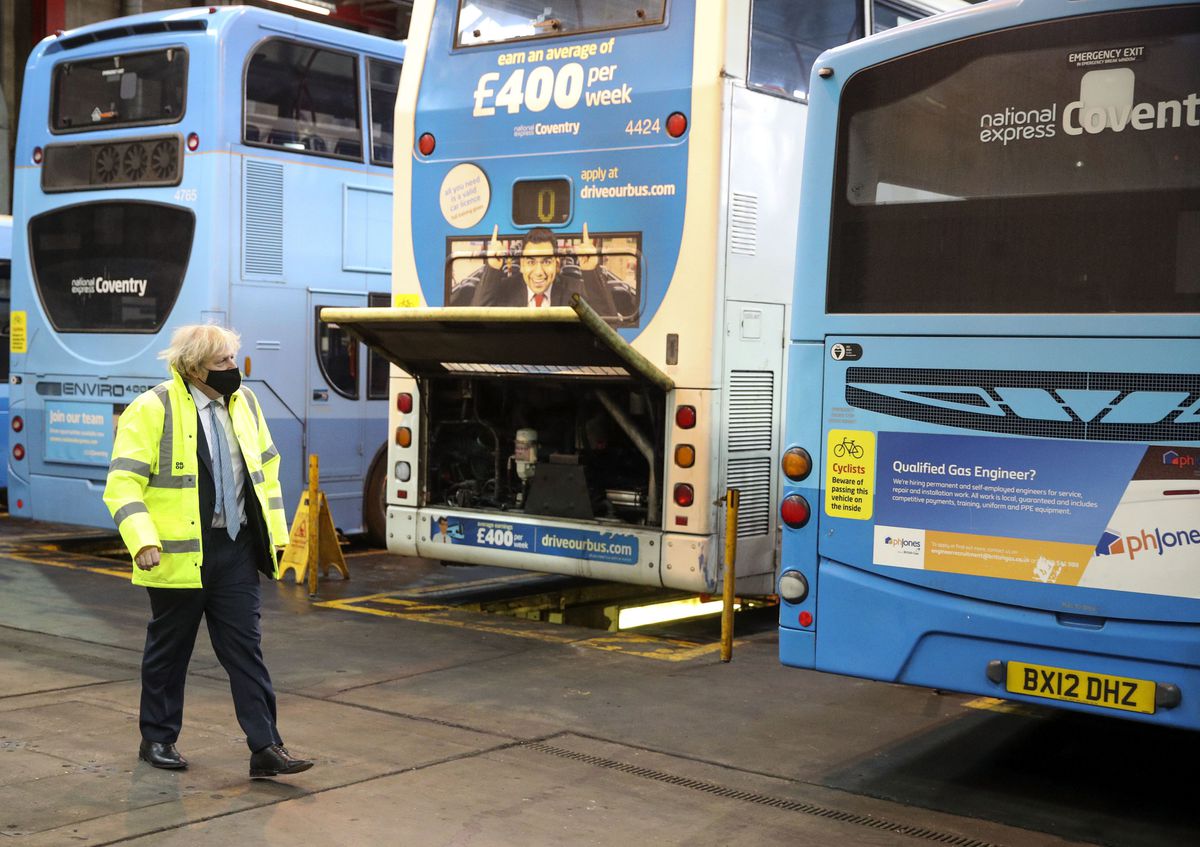We are currently working in the bus depot in Coventry where Boris Johnson announced his Bus Back Better strategy. Whilst the publicity generated by sitting in an electric bus is only likely to have short term benefits, there are some longer term implications of the strategy which forward thinking operators will grasp, and help to shape, to the advantage of both themselves and the travelling public.
Traditionally buses have run to a relatively fixed timetable with changes made infrequently throughout the year. This made the provision of a service relatively straightforward, with a known and stable requirement for buses each day. The government’s new strategy will require operators and local authorities to work much more closely and much more flexibly, to focus on where and when passenger demand is, if they are to access funding.
The money being made available to local authorities to set up their side of the partnerships will not stretch far. In a lot of cases it will, therefore, be left to the operators to take the initiative and propose services that meet the demands of residents. This will require more robust forecasting and planning; looking at ridership, traffic patterns and business requirements. Technology will help but any bus driver will be able to identify infrastructure changes that will enable improved services. It will, however, need active management to ensure that this is quantified and fed back to councils in a structured and collaborative manner.
We have seen numerous examples where what is supposed to be a partnership fails to achieve its objectives because of a lack of trust and a lack of accurate information flowing between the two parties. There will be slip-ups on all sides over the next few years – it will take time for people to modify their behaviour and shift to different modes of transport. Bus priority works will cause traffic jams, residents will complain about empty buses, councillors will look at the subsidies and question the value they are getting. Work will be required to open up these information flows and ensure that objectives and real outcomes are clear and transparent – we see too many occasions where the contract drives the wrong behaviours and misreporting. Data is used to claim penalties and a huge amount of effort is put into mitigation rather than learning. This data should be used to plan the future and not to find fault in the past. By working in real partnership, and having a robust management operating system, the next few years could see a transformation in the bus industry, but it is an opportunity that will only come once and those operators that fail to take it will see a continued decline, as subsidies and the number of bus users decline.
To see how we have helped improve partnership working and engineering operations click here and here.
Image Source: https://www.expressandstar.com/news/transport/2021/03/15/new-routes-and-cheaper-fares-on-way-in-pms-3-billion-bus-revolution/

